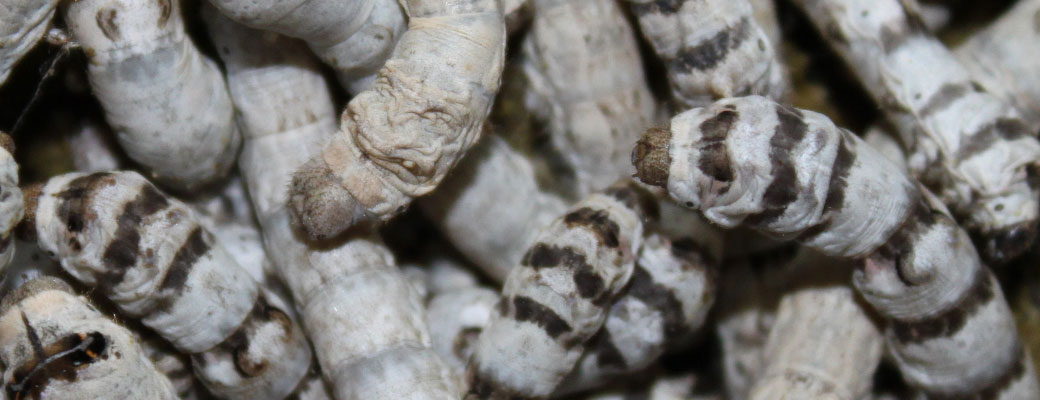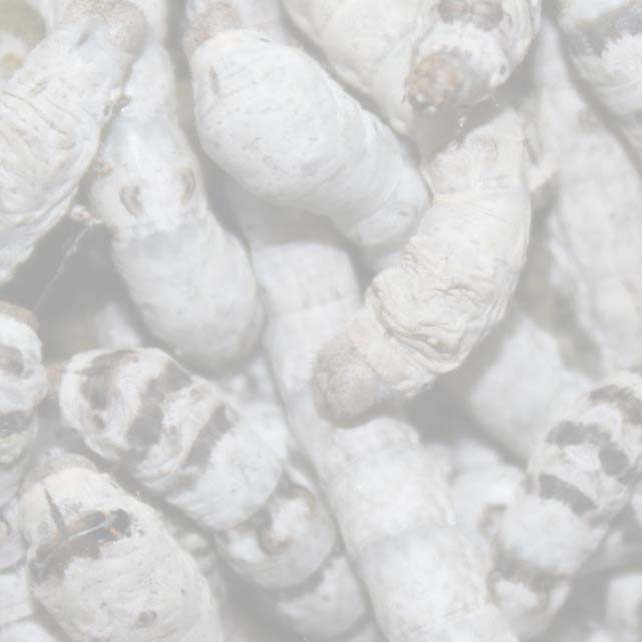We use cookies to make your experience better. To comply with the new e-Privacy directive, we need to ask for your consent to set the cookies. Learn more.
How To Grow Silkworms? Silkworm Care & Raising Instructions

What do you keep silkworms in and at what temperature?
Silkworms must be kept in a warm, dry environment. For optimal growth keep your silkworm's in range of 70-85F. Upon arrival, open any deli cups/petri dishes that contain live silkworms. Empty the silkworms into a plastic box, or one of our silkworm keepers for best results. Our silkworm keepers are reusable, easy to clean, and offer optional screen bottoms that are replaceable.
What do silkworms eat, how do I feed silkworm larvae?
Silkworms only eat mulberry leaves of the preferred white mulberry (morus alba) tree. Due to the season nature of these trees, you might not have access to leaves. The gluttonous consumption of silkworms also makes feeding fresh mulberry leaves difficult, most will prefer to use silkworm chow for feeding silkworms any time of year. There are no other viable food options that will keep silkworms alive and growing. Our silkworms are conditioned to eat our silkworm chow mix with perfect results, you should avoid changing diets. If feeding leaves keep feeding leaves, if feeding silkworm chow do not mix with mulberry leaves. Silkworms prefer the fresh mulberry leaves, and my go off eating the silkworm chow when you run out of leaves. Use caution with fresh leaves, always test each trees leaves with only a few silkworms for 24hrs. If the worms are still alive its then safe to feed leaves from that given tree to all the silkworms you are rearing up.
How do I do use the powdered mulberry silkworm food packet in my order?
If you ordered powdered mulberry silkworm food, prepare it upon arrival per the instructions on the label. Silkworms will be given food to eat in transit, they will require feeding on delivery. If you ordered pre-made mulberry chow, it's "ready-to-feed". If you‘re using fresh mulberry leaves be sure to wash them before feeding. With the mulberry chow, grate a thin layer over the top of the silkworms; we prefer the silkworm food grater for feeding out food to silkworms. Silkworms will immediately crawl up and start to feed on the chow. With fresh mulberry leaves cover the silkworms with two layers of leaves per feeding, you can also cut leaves into strips and sprinkle over the silkworms.
How much do I feed silkworms and how often?
Silkworms should be fed daily, if you want rapid growth feed twice a day this is especially true with newly hatched silkworm eggs feeding on fresh mulberry leaves. If you're looking to slow growth down, feed once every other day. Silkworms consume large amounts of food, be prepared so you don't run out and find yourself in a jam.
How to care for silkworms, keeping silkworms clean and disease free?
It's important to wash your hands before handling silkworms and mulberry chow/leaves. Once you remove a silkworm from the colony do not place them back into the colony. This practice will increase your chances of introducing bacteria/mold to your silkworm colony. We recommend you discarding any uneaten silkworms that are left in your animal's cage, if any! Over cleaning also is not advised, and will lead to a higher die off from constant irritation. We recommend keeping handling silkworms down to a minimum decreasing your chances of mass die offs. For this reason we recommend you have a spare silkworm keeper to transfer the silkworms to when cleaning time comes. You should not clean out the silkworm keepers more then once a week. In general we have found it best to keep all handling of the silkworms to a minimum at the same time keeping things clean but not perfectly clean. If using a silkworm keeper allot of the poop will fall through the screen and you just need to dump this out of the bottom every other feeding.
Do silkworms bite, can silkworm moths fly?
No, silkworms do not bite, if anything they will tickle and stick to your fingers. You do not need to worry, they can not harm you. Silkworm moths once hatched from cocoons also do not bite and do not fly.
Are silkworms poisons?
No, silkworms will not harm you - do not sting and are consumed by both humans and animals all over the world. Silkworms are not poisons to reptiles, and will not harm or kill your creatures.

